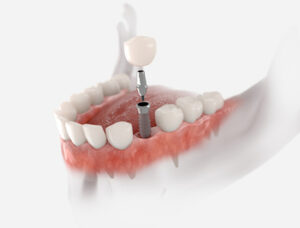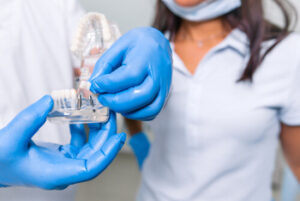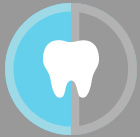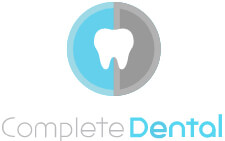Dental health is a cornerstone of overall well-being. It influences not only our smile and confidence but also our general health. Once considered a luxury, dental implants have quickly become a sought-after solution for Australians seeking to regain their radiant smiles and functional bite. This increase in demand can be attributed to the undeniable advantages implants offer over traditional dentures or bridges. They promise durability, stability, and an appearance indistinguishable from natural teeth.
However, there’s a caveat. The costs associated with dental implants, especially in countries like Australia, where medical procedures can be pricey, often deter many. Yet, the landscape is changing. Increasing technological advancements, broader accessibility, and a competitive market have introduced more affordable options for those on a tight budget. But herein lies a crucial question: Can affordable also mean quality?
This article embarks on a comprehensive journey into dental implants in Australia, focusing on achieving the delicate balance between affordability and quality. It delves deep, providing insights into the cost structure, avenues to explore for cost-effective solutions, and the critical importance of not compromising on the standard of care in the pursuit of affordability. Get more information.
Understanding Dental Implants
Dental implants have revolutionised the world of dental care. At their core, they’re artificial tooth roots made typically of titanium, designed to be inserted into the jawbone. Their primary purpose is to hold a replacement tooth or bridge, making them a preferred choice for patients with a missing tooth or teeth due to periodontal disease, an injury, or some other cause.
Components and Structure
A standard dental implant system comprises three essential components:
- The Implant: Often made of titanium, this screw-like structure is surgically inserted into the jawbone, acting as the root for the new tooth.
- The Abutment: This component sits above the gum line and connects the implant to the replacement tooth.
- The Crown (Prosthetic Tooth): Custom-made to match your natural teeth, this is the visible part of the tooth and is anchored to the implant via the abutment.
Types and Varieties
While the fundamental idea remains the same, dental implants come in different varieties, catering to individual needs:
- Endosteal Implants: These are the most common type placed directly into the jawbone.
- Subperiosteal Implants: Positioned under the gum but on or above the jawbone, these are often chosen when patients have a shallow jawbone and do not want to undergo a procedure to rebuild it.
- Mini Implants: As the name suggests, these are smaller and are typically used for patients who aren’t candidates for traditional implants.
Benefits Over Traditional Methods
Dental implants stand out because they:
- Offer a natural look and feel.
- They are durable, with the potential to last a lifetime.
- Improve speech and eating abilities, unlike ill-fitting dentures.
- Do not require reducing other teeth, as a tooth-supported bridge does.
The Implantation Process
The dental implant journey isn’t a one-day affair. It starts with a thorough dental examination and develops a personalised treatment plan. The implant is then placed into the missing tooth’s bone socket, and as the jaw bone heals, it adjusts around the implant, securing it. Once healed, the abutment and prosthetic tooth are fixed.
Dental implants symbolise the blend of advanced dentistry with functional and aesthetic restoration. With the right care and maintenance, they can be a permanent solution to the challenges of missing teeth.
The Average Cost of Dental Implants in Australia
Exploring the intricate landscape of dental implant cost in Australia offers insights into both the evolving dental industry and the pursuit of a radiant, lasting smile. Discover more.
Factors Influencing the Cost
When investigating the dental implant procedure, one quickly realises the prices can vary significantly. Several factors drive these cost differences:
- Type of Implant: Basic endosteal implants might cost less than subperiosteal or mini implants.
- Number of Implants: A single implant will be cheaper than a full-mouth restoration.
- Materials Used: High-quality titanium or zirconium implants might be pricier than other materials.
- Additional Procedures: Dental implants cost can rise if bone grafting, sinus lifts, or extractions are necessary before implantation.
- Location and Clinic: Metropolitan cities or high-end clinics usually have higher prices than suburban or regional areas.
A Glimpse at the Figures
On average, the price for a single dental implant in Australia ranges from AUD 3,000. This estimate encompasses the surgical placement of the implant and the crown. However, it’s important to note that this is a ballpark figure. The more specialised or complicated the replacement teeth procedure, the higher the potential cost.
Full-mouth dental implants, often called “All-on-4”, can cost anywhere from AUD 15,000 per arch of multiple teeth, depending on the intricacies of the procedure and the chosen clinic.
Comparative Cost Analysis
When weighing the costs of dental implant treatment, it’s valuable to compare them against other dental restoration procedures:
- Dentures: Though initially cheaper (starting from AUD 1,000 for full dentures), they might need replacements or frequent adjustments, leading to cumulative costs over the years.
- Bridges cost starting from AUD 2,000 but may require replacements every 10-15 years.
Understanding the Investment
While dental implant surgery may seem expensive upfront, it’s important to view them as a long-term investment in oral health. Quality implants, when well-maintained, can last a lifetime, reducing the need for replacements or constant dental visits.
Factors Making Dental Implants Cheaper
In the ever-evolving world of dental technology, the cost of tooth replacement procedures, particularly dental implants, often fluctuates. As many Australians seek ways to regain their smiles without breaking the bank, understanding the factors driving down these costs is pivotal. Let’s explore the primary reasons behind the available cheap dental implant options.
Technological Advancements
The progress in dental technology is commendable. Computer-aided design and manufacturing (CAD/CAM) innovations allow for more efficient and precise implant production. As technologies mature and become mainstream, the costs often decrease, benefiting the end consumer.
Economies of Scale
The rising demand for tooth implants means more bulk production. Manufacturers can reduce the per-unit cost when producing in large quantities, a saving often passed down the chain to the patient.
Competition in the Market
With more dental clinics and professionals offering implant services, market competition exists. Clinics are vying for patients, often leading to competitive pricing, promotional offers, or bundled services.
Imported Materials
While there’s an ongoing debate about the quality of imported vs. locally produced dental materials, there’s no denying that implants sourced from overseas, particularly from countries with lower manufacturing costs, can be cheaper.
Training and Education
The increasing number of training programs and courses for dentists means more professionals are equipped to offer dental implant services. An increase in supply can often lead to price reductions, making the service more accessible.
Alternative Implant Systems
Beyond the traditional implant systems, newer alternatives, like mini implants, can sometimes be cheaper. They might be suitable for specific cases and more cost-effective due to reduced material and time requirements.
Efficiency in Procedures
Advanced imaging techniques and surgical guides have streamlined the implant procedure. Quicker and more efficient surgeries reduce patient chair time and overall costs.
The road to affordable dental implants is paved with technological advancements, market dynamics, and broader professional expertise. However, while cost-saving is crucial, it’s equally important for patients to ensure that affordability doesn’t compromise the quality and longevity of the implants. Always seek qualified professionals and accredited clinics when considering dental implants.
How to Find Affordable Dental Implants without Compromising Quality

Research and Compare Prices
The internet is a treasure trove of information. Numerous clinics provide their pricing structures online. By dedicating time to thorough research, you can compare the rates offered by different clinics. While lower prices might seem attractive, they shouldn’t be the sole determinant.
Seek Recommendations
Word of mouth remains a powerful tool. Ask friends, family, or colleagues who’ve had dental implants about their experiences. Their firsthand accounts can provide insights into the quality of service and the associated costs.
Check Reviews and Testimonials
Beyond personal connections, the digital age has given rise to platforms where patients openly review their experiences. Websites, forums, and even social media can offer insights into patient satisfaction, quality of work, and pricing.
Clinic Promotions or Financial Plans
Some clinics offer promotions during specific periods or provide discounts for bundled services. Additionally, financing options or payment plans can make the costs more manageable, allowing patients to spread the cost over time without compromising quality.
Opt for Clinics Specialising in Implants
While general dentists can and do perform implant procedures, clinics or professionals specialising exclusively in implants often have extensive experience. Their streamlined procedures lead to cost savings, which could be passed to the patient. Plus, their specialisation often means better quality work.
Use of Advanced Technology
Clinics investing in modern technology may initially seem pricier. However, advanced imaging or CAD/CAM technologies can reduce the number of visits, minimise potential complications, and ensure a better fit. Over time, this could lead to cost savings and superior results.
Understand the Full Cost Breakdown
A seemingly low price might not include all aspects of the procedure, like initial consultations, imaging, post-operative care, or the crown. Ask for a detailed cost breakdown, so you know exactly what’s included and can compare apples to apples.
Ensure Accreditation
Accredited clinics adhere to specific standards, ensuring patient safety and quality of care. While accreditation might not directly relate to costs, it does give a guarantee of professional competence. Preventing complications through quality care can save money in the long run.
The Role of Dental Insurance in Reducing Implant Costs
Dental implants, while increasingly popular, come with a significant price tag. Enter dental insurance, a tool designed to alleviate some of the financial burdens associated with dental care. But how impactful is dental insurance regarding the cost of implants? Let’s delve into its role and potential benefits.
Coverage Variability
Not all dental insurance plans are designed equal. Some offer extensive coverage for dental implants, while others may only provide half coverage or exclude them entirely. It’s crucial to understand the specifics of your policy to determine potential cost savings.
Partial Payments and Caps
Many dental insurance providers that do cover implants often set a cap on the maximum amount payable annually. While this won’t cover the entire cost, it can substantially reduce out-of-pocket expenses. Some policies also pay a fixed amount towards the implant, regardless of the total cost.
Associated Procedures
Even if an insurance policy doesn’t cover the implant procedure directly, it might cover associated treatments. This could include preliminary exams, x-rays, or procedures like extractions or bone grafts, indirectly reducing the overall expenditure on the implant journey.
Preventative and Post-Care Savings
Many dental insurance plans prioritise preventative care, which can indirectly play a role in successful implant procedures. Regular check-ups and post-implantation care, often covered by insurance, ensure the longevity of implants, providing long-term value.
Tips for Maintaining Dental Implants to Reduce Future Costs
Investing in dental implants is a significant step towards restoring the aesthetic and functionality of one’s smile. However, proper maintenance ensures longevity and avoids potential future expenses like any investment. Here are some invaluable tips to keep those implants in pristine condition, safeguarding your smile and wallet:
Regular Oral Hygiene Routine
Brushing:
Use a soft-bristled toothbrush to gently clean your teeth and the surrounding implant area. Specialised brushes, such as interdental brushes, can help clean those hard-to-reach areas around the implant.
Flossing:
Utilise unwaxed dental floss or floss designed for implants to ensure no food particles are lodged around them
Avoid Hard and Sticky Foods
Chewing hard foods, like ice or hard candies, can damage the crown on the implant. Similarly, sticky foods might dislodge or damage the crown. Be mindful of your diet to prolong the life of your implant.
Regular Dental Check-ups
As you would for your natural teeth, schedule regular check-ups with your dentist. These visits will allow your dentist to ensure your implant is in good condition and address potential issues early on.
Avoid Smoking and Excessive Alcohol
Both smoking and excessive alcohol consumption can inhibit oral health, potentially leading to implant failure. Avoiding or minimising these habits can enhance the success rate of your implant and its longevity.
Wear a Mouth Guard
If you’re involved in contact sports or have a habit of grinding your teeth at night (bruxism), consider using a mouth guard. It can help protect both your natural teeth and implants from potential damage.
Avoid Using Teeth as Tools
Refrain from using your teeth – natural or implanted – as tools for tasks like opening bottles or tearing packages. This can lead to unnecessary strain or damage.
Maintain Overall Oral Health
Gum disease can be a risk to your dental implant. Regularly rinse with an antimicrobial mouthwash and maintain a healthy oral environment to prevent gum issues.
Conclusion

Take your time with dental implants or other dental inquiries. Complete Dental guides assist and ensure your oral health is in the best hands. Our team of experienced experts is committed to providing top-notch care tailored to your needs.
Make your oral health a priority today. Contact Complete Dental to embark on a journey toward a brighter, healthier smile. Your future self will thank you!
Coorparoo: (07) 3801 6503
Elanora: (07) 5235 8199
References:
https://www.mayoclinic.org/tests-procedures/dental-implant-surgery/about/pac-20384622
https://www.forbes.com/health/dental/how-much-dental-implants-cost/









